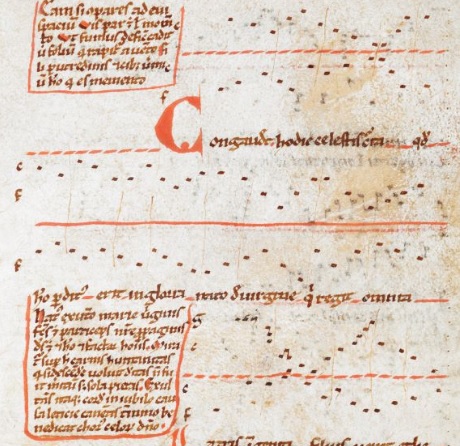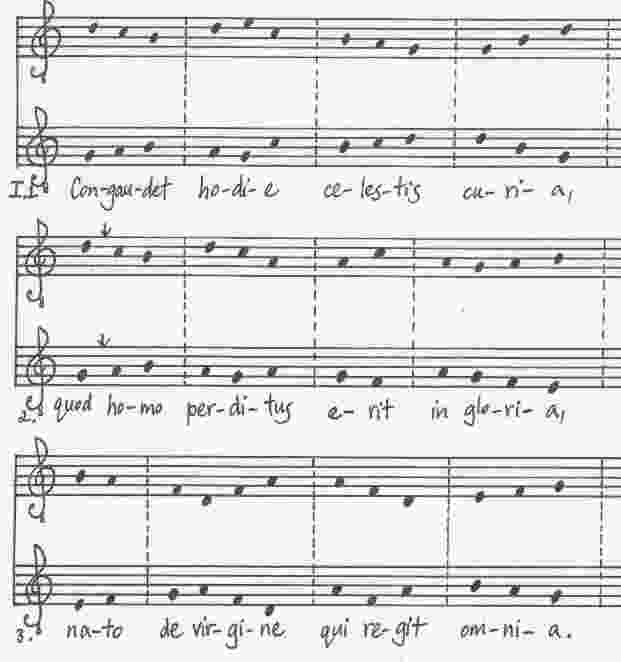| Congaudet hodie |
音楽エッセイのページへ戻る
St.マーシャル楽派へ
Jubilemus, exultemusの解説ページ(英語)へ
Congaudet hodie celestis curia Natus ex utero Marie Virginis, Miratur super hoc carnis humanitas, Exultans itaque corde in jubilo, Rex est mirabilis sed spiritaliter Nos qui recolimus dei potencias Relationships between the Twelfth-Century Aquitanian Polyphonic Versus and Two-Part Conductus Repertories p118より Congaudet hodie is the only work in the Aquitanian repertory that is set entirely in note against-note style; therefore, this is one of the few works in the repertory for which there is no ambiguity about the way the voices fit together. Both voices have the same range, which is based around the final, G, and its fifth above, and they both extend down to the fourth below the final. Both voices are entirely equal in this work. Relationships between the Twelfth-Century Aquitanian Polyphonic Versus and Two-Part Conductus Repertories p148より   http://www.bl.uk/manuscripts/FullDisplay.aspx?ref=Add_MS_36881 |